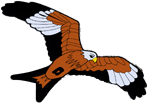French
Intent
At Stokenchurch Primary School, we believe that learning a foreign language is a necessary part of being a member of a multi-cultural society and provides an opening to other cultures. Our curriculum intent reflects our belief that all children benefit from studying MODERN FOREIGN LANGUAGES at an early age. Therefore, we offer each child in Years 3-6 an insight into the culture and civilisation of the countries where French is spoken. Our aim is to develop the ability of each child to use the language effectively in a variety of practical situations, to encourage creativity and to provide enjoyment and intellectual stimulation. Role-play, drama, songs, games and audio-visual aids and e-learning, are all used to encourage accuracy, accent and confidence.
We aim:
- To introduce the French language to every child in KS2;
- To encourage each child to realise his or her own academic potential in these subjects;
- To encourage a sense of real achievement by developing confidence and raising motivation;
- To encourage creativity and imagination;
- To promote positive work habits which encourage pupil autonomy, activity and independence;
- To develop social skills such as the ability to work in pairs or small group situations;
- To enable each child, according to his or her ability, to appreciate French culture as it applies to a tourist and to someone living as part of a French family;
- To encourage children in all these ways to enjoy these subjects so that they will wish to continue their studies and take up the study of other Modern Languages, either for pleasure, further study or work.
Implementation
Our teaching of French is supported by the Kapow scheme of work. We will be following their condensed plan which supports our school’s wider and varied curriculum commitments. The units studied provide our pupils with full National Curriculum coverage along with a clear progression of language-learning skills unit by unit from Year 3 up to the end of Year 6.
The French scheme of work is designed with three knowledge strands that run throughout the units studied with knowledge building cumulatively. These strands are:
- Phonics
- Vocabulary
- Grammar
These knowledge strands are applied within two skill strands:
- Language comprehension (Listening and reading)
- Language production (Speaking and writing)
Early language-learning in Year 3 focusses on developing oral skills before introducing the written French element in Year 4 and beyond. We have a spiral curriculum, whereby key skills and vocabulary are revisited repeatedly with increasing complexity, allowing pupils to regularly revise and build on their previous learning.
At Stokenchurch, we have a half hour a week MFL timetable commitment along with additional on the spot ‘recap and recall’ opportunities throughout the week.
Lessons incorporate a range of teaching strategies from independent tasks, paired and group work including role-play, language games and language detective work. We focus on developing what we term ‘language detective skills’ and developing an understanding of French grammar, and key vocabulary rather than on committing to memory vast amounts of French vocabulary. Pronunciation is emphasised early on using ‘Mouth mechanics’ videos to support pupils with phoneme pronunciation in French.
Additionally, lessons are supported by the use of ‘Language Angels’ which offer high quality interactive games, songs, videos and additional resources to capture pupil engagement and a love of language-learning.
Impact
The units studied provide our pupils with full National Curriculum coverage with expectations that by the end of Year 6, our children will:
- Be able to engage in purposeful dialogue in practical situations (e.g., ordering in a cafe, following directions) and express an opinion.
- Make increasingly accurate attempts to read unfamiliar words, phrases, and short texts.
- Speak and read aloud with confidence and accuracy in pronunciation.
- Demonstrate understanding of spoken language by listening and responding appropriately.
- Use a bilingual dictionary to support their language learning.
- Be able to identify word classes in a sentence and apply grammatical rules they have learnt.
- Have developed an awareness of cognates and near-cognates and be able to use them to tackle unfamiliar words in French, English, and other languages.
- Be able to construct short texts on familiar topics.
- Meet the end of Key Stage 2 stage expectations outlined in the National curriculum for Languages.
This will enable our pupils to progress into a secondary setting with a range of language-learning skills to be applied in the study of French, of any other language, with confidence.
